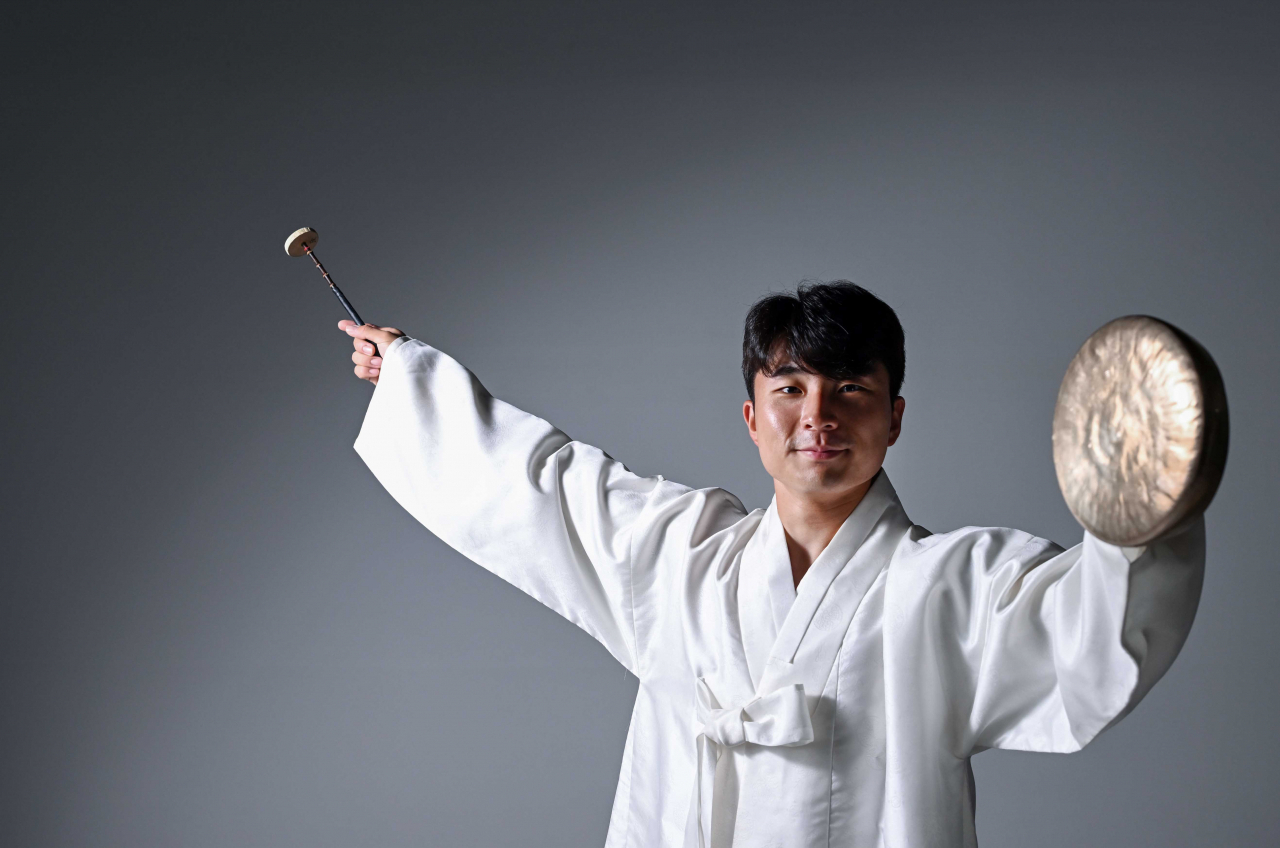
For Kim Ju-ho, a student of Korean music at Seoul National University, language takes two forms -- one expressed through his vocal cords and the other through kkwaenggwari.
“(Kkwaenggwari music) is another language for projecting myself,” Kim said, describing his relationship with the instrument.
Kkwaenggwari is a traditional percussion instrument made of brass that is beaten with a wooden mallet. The instrument is known for its distinctive metallic clang that is used to set the rhythm in many genres of traditional Korean music. Kim, who began playing the janggu -- a double-sided drum -- was drawn to the kkwaenggwari for this reason.

“When I was in Gugak National Middle School, I was drawn to the kkwaenggwari because as it leads a performance,” he said, adding that the instrument must be played with care as the sheer volume of its sounds could easily breach the boundary between music and noise.
“The more I train, the harder the kkwaenggwari seems to become. I think a lot about how I should play in order to add my own colors while delivering the rhythm in its original form.”
In the more familiar form of kkwaenggwari performances involves the musician moving with the rhythm, Kim plays the instrument sitting down, which he says has its own advantages.

“In standing performances, the musician dances with the music, so the audiences can become more engaged. But the style that I practice is mainly performed sitting down so that the audiences can focus more on the rhythm,” Kim said.
“I want to study the kkwaenggwari more, preserve our music and find my own style so that I can collaborate with many different genres to take (the kkwaenggwari) closer to the public.”
Photos by Lee Sang-sub
Written by Lee Sang-sub, Choi He-suk







![[Today’s K-pop] Blackpink’s Jennie, Lisa invited to Coachella as solo acts](http://res.heraldm.com/phpwas/restmb_idxmake.php?idx=644&simg=/content/image/2024/11/21/20241121050099_0.jpg)